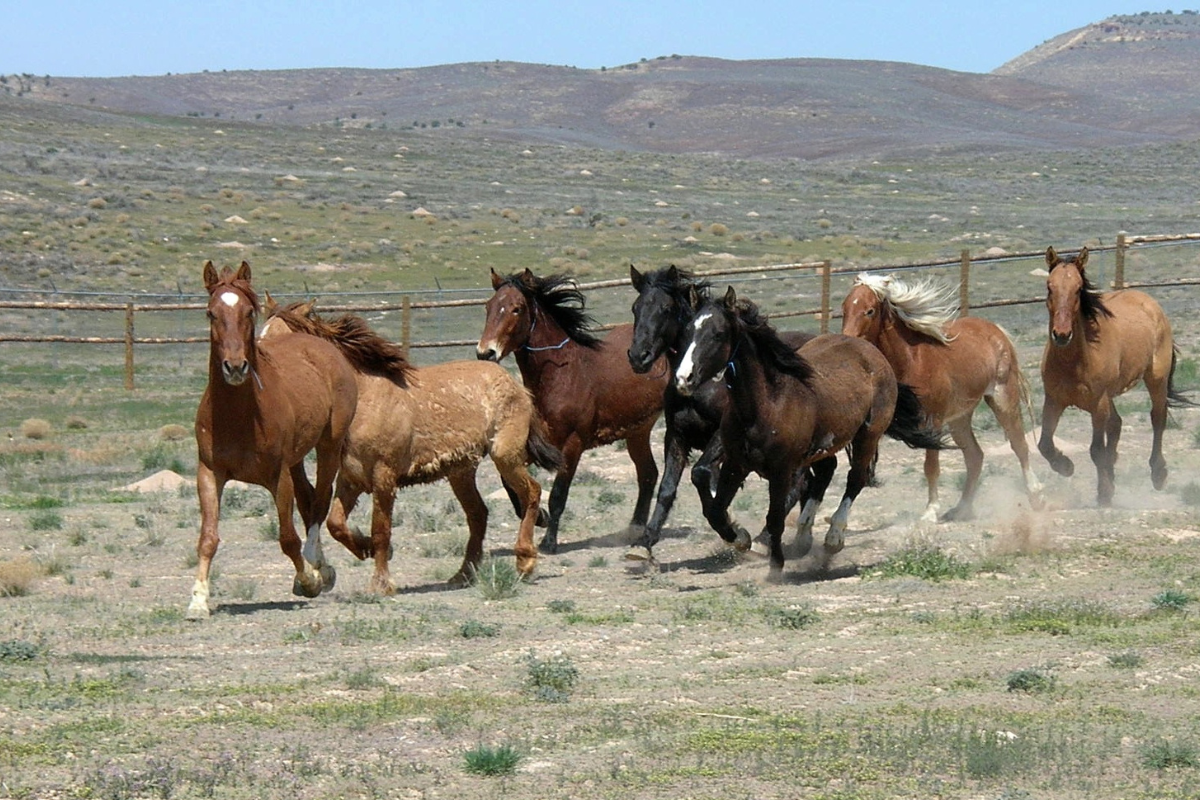Friends of Animals has filed a lawsuit against the Bureau of Land Management because the agency broke the law when it hastily awarded a contract to Nevada-based JS Livestock to construct and operate the largest off-range wild horse and burro corral in the U.S. to date. The BLM did not carefully consider the ill effects of imprisoning up to 4,000 wild horses and burros in 40 pens on 100 acres of private land in Winnemucca, Nevada, or the negative environmental impacts of the facility.
“This reckless decision means more wild horses and burros will be removed from their homes and families in the wild to live in crowded, unsanitary and dangerous conditions at the public expense,” said Jennifer Best, director of Friends of Animals Wildlife Law Program. To read FoA’s Complaint for Declaratory and Injunctive Relief, click here.
The lawsuit points out that the proposed fiscal year 2022 roundup schedule relied on the addition of this holding prison. It also states that disease outbreaks are common at off-range corrals. The most recent example occurred in April and May 2022, when at least 145 wild horses died from equine influenza at the Cañon City ORC in Colorado. These types of outbreaks occur often given the conditions of the facilities, inadequate regulations and unenforceable guidelines.
“BLM thinks it’s above the law and rushed through the approval process, dismissing the harms that the unprecedented facility will inflict on wild horses and burros and the environment,” Best added. “It’s preposterous that despite receiving over 6,000 comments, which raised concerns about disease transmission among wild horses, air quality in terms of odor and dust, animal waste, disposal of dead animals, groundwater contamination and flooding, the BLM neglected to do an Environmental Impact Statement as required by the National Environmental Policy Act.”
The lawsuit states that the Winnemucca location presents unique hazards due to the presence of silty clay soil at the site that is prone to dust and flooding and extreme heat that could cause unnecessary suffering for wild horses and burros who will not be offered shelter and shade.
The lawsuit also raises concerns about JS Livestock only being required to clean the pens up to four times per year. In six months, 100 horses will produce about 465 tons of waste and about 930 tons annually. Four thousand horses will produce about 18,615 tons every six months and about 37,230 tons of waste annually.
“BLM’s decision stinks. And what is profoundly disturbing is that wild horses often ending up rotting away in these ORCs for two years or longer before there is availability at off-range pastures,” said Priscilla Feral, president of Friends of Animals.
As of June 2022, there were over 58,000 wild horses and burros imprisoned in ORCs and off-range pastures.
“If the BLM based its decisions on science and not placating the meat industry that wants wild horses to go extinct, the agency would keep its hands off wild horses, and recognize letting them roam wild and free helps fertilize soil on the range; increases access to water for other species, reduces risk of catastrophic fires and boosts biodiversity,” Feral said.

